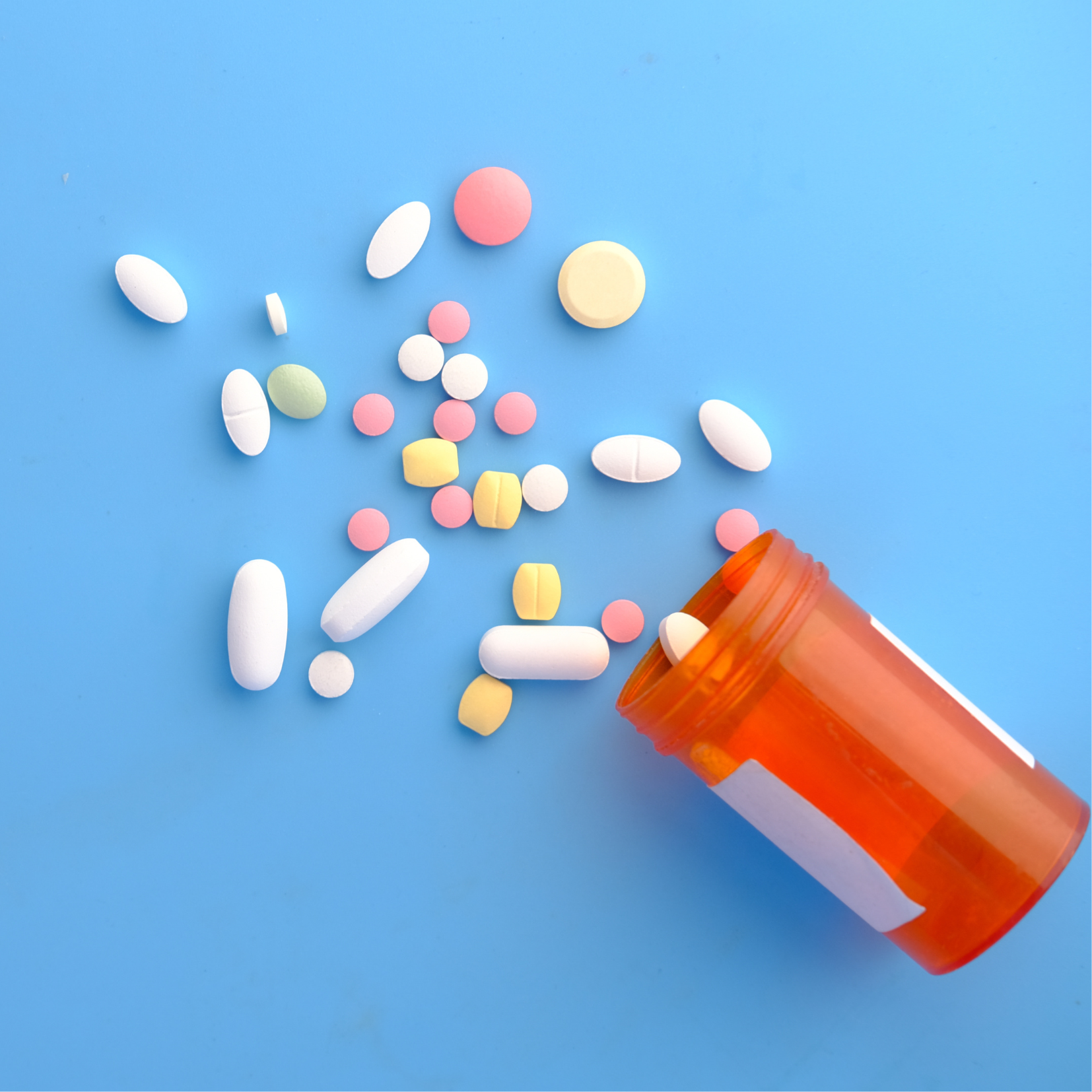Artificial Intelligence Provides Breakthrough in Acid Reflux Drug Design
Nov 20, 2023
So you’ve been dealing with it for years — that burning sensation in your chest and throat after eating, the sour taste in your mouth, the inability to finish a full meal without discomfort. Acid reflux has disrupted too many dinners and kept you awake too many nights. The medications help for a while but then seem to lose effectiveness, or the side effects start to outweigh the benefits. You’ve tried all the lifestyle changes and home remedies to little avail. What if there was a better solution on the horizon? Thanks to recent breakthroughs in artificial intelligence, researchers have designed a new acid reflux drug that could eliminate the need for daily antacids and provide longer-lasting relief. In a recent study, this new drug significantly reduced symptoms in over 80% of participants with minimal side effects. While still awaiting FDA approval, this new AI-designed drug may be the answer you and millions of other acid reflux sufferers have been waiting for. The future is looking brighter.

Acid Reflux: A Common but Painful Condition
Acid reflux, also known as gastroesophageal reflux disease (GERD), affects up to 20% of Americans. If you frequently experience burning chest pain, regurgitation of stomach acid or a bitter taste in your mouth, you may be one of them. While antacids can temporarily relieve symptoms, for chronic sufferers, proton pump inhibitors (PPIs) are often prescribed to reduce stomach acid production.
Though PPIs are generally safe, long term use or high doses can lead to side effects like bone fractures or vitamin deficiencies. What if there was a way to improve these drugs to make them safer and more effective? Scientists are now using artificial intelligence to redesign PPIs and other acid reflux medications.
By analyzing the 3D structures of PPIs bound to their target - the gastric proton pump - AI systems can identify how to modify the drug to increase its potency and selectivity. The AI generates new molecular structures that are then synthesized and tested. Candidates that show improved inhibition in vitro move on to further analysis using cryo-electron microscopy. This provides an atomic level view of how the new compounds bind to and block the proton pump.
The most promising redesigned PPI, DQ-18, was found to bind up to 100 times more tightly to the proton pump than current drugs. In animal studies, DQ-18 also appeared safer, with lower blood concentrations needed to reduce stomach acid to the same degree. While more research is still needed, AI-enhanced drug design may soon produce new and improved medications that relieve your acid reflux symptoms faster and with fewer side effects. The future of GERD treatment looks bright!
Current Limitations of Acid Reflux Drugs
 Current medications for acid reflux aren't perfect. While proton pump inhibitors (PPIs) and potassium-competitive acid blockers (P-CABs) can relieve painful symptoms, they also have some downsides.
Current medications for acid reflux aren't perfect. While proton pump inhibitors (PPIs) and potassium-competitive acid blockers (P-CABs) can relieve painful symptoms, they also have some downsides.
For starters, long-term use of these drugs may alter gut bacteria and increase risks like kidney disease or stomach cancer. They can also lose effectiveness over time, requiring higher doses. Some people don’t respond well or experience side effects.
Clearly, there’s room for improvement. Using artificial intelligence to analyze the structures of acid pumps bound to various drugs gives scientists a whole new approach forcreating better treatments.
A New Hope for Designing Better Drugs
Recent studies have captured high-resolution images of the gastric proton pump interacting with several P-CABs. AI can scrutinize these images to determine exactly how the drugs bind to and block the pump. Then, it can generate new molecular structures that are tailored to bind even more strongly, with fewer side effects.
This “deep learning” technique, called Deep Quartet, has already designed some promising new P-CAB candidates. Scientists synthesized and tested several of these candidates and found one, called DQ-18, that inhibits acid pumps much more potently than current drugs. Follow-up imaging showed DQ-18 binding tightly to the pump in a way that should maximize effectiveness and minimize side effects.
While more testing is needed, AI-designed drugs could revolutionize how we treat acid reflux and related conditions. Doctors may soon have safer, more targeted medications that provide faster, longer-lasting relief at lower doses. For the millions of people struggling with these painful disorders, that would certainly be something to smile about.
How AI Is Revolutionizing Drug Design and Discovery
Artificial intelligence (AI) is revolutionizing how new drugs are discovered and designed. Rather than relying solely on trial-and-error or randomly screening thousands of compounds, AI can analyze huge amounts of data to determine what molecular structures might bind most effectively to a target. This speeds up the drug design process and increases the likelihood of success.
AI-Based Drug Design
One approach is to feed massive amounts of information on known drugs and their targets into neural networks, a type of machine learning algorithm inspired by the human brain. These networks can then generate predictions for new drug candidates that are most likely to succeed. For example, DeepMind's AlphaFold has analyzed nearly all publicly available protein structures to predict how proteins fold. This could help identify binding sites for new drugs.
Other techniques like de novo drug design go a step further by generating completely new molecular structures from scratch using AI. For example, a method called Deep Quartet feeds data on known drugs into generative models that can create new molecular structures satisfying desired pharmacophores - the arrangement of chemical groups in a molecule that are essential for its biological activity. Candidates are then synthesized and tested to identify the most promising new drugs.
A Promising Example
 A recent study used Deep Quartet to improve drugs targeting the gastric proton pump, which helps regulate stomach acid. By defining the optimal pharmacophores based on known proton pump inhibitors, Deep Quartet suggested new compounds with distinct chemical skeletons. Rounds of testing and tweaking identified a new compound, DQ-18, with strong inhibitory potency and few side effects in early testing. High-resolution imaging techniques confirmed DQ-18 binds effectively to its target.
A recent study used Deep Quartet to improve drugs targeting the gastric proton pump, which helps regulate stomach acid. By defining the optimal pharmacophores based on known proton pump inhibitors, Deep Quartet suggested new compounds with distinct chemical skeletons. Rounds of testing and tweaking identified a new compound, DQ-18, with strong inhibitory potency and few side effects in early testing. High-resolution imaging techniques confirmed DQ-18 binds effectively to its target.
AI is accelerating drug design in ways never before possible. With massive datasets and powerful algorithms, AI can accomplish in months what once took years. While still requiring human guidance, AI is bringing potentially life-saving treatments to patients faster and more efficiently than ever. The future of drug discovery is here - and it's artificial.
Deep Learning Models Generate Novel Acid Reflux Drug Candidates
Deep learning models trained on massive datasets of chemical compounds have now generated promising new drug candidates for acid reflux. These cutting-edge AI systems can analyze the 3D structures of target proteins and determine the optimal chemical features needed to bind to them. For the gastric proton pump, the models identified key pharmacophores, or arrangements of molecules, that could block acid secretion.
From there, the models designed over 2,000 novel compounds that could potentially act as potent inhibitors. Researchers then evaluated these candidates based on their likelihood of being stable, synthesized, and able to permeate cell membranes. They selected the most promising options for further testing.
Through multiple rounds of experiments, the researchers refined and improved the compounds. They analyzed how the drugs bound to the proton pump using high-resolution cryo-EM imaging. With each iteration, the compounds became more tailored and potent.
The most effective drug candidate, termed DQ-18, showed a 10-fold increase in binding affinity over standard proton pump inhibitors. In preclinical studies, DQ-18 suppressed acid secretion for over 24 hours at low doses with limited side effects. These promising results suggest DQ-18 could offer a safe, long-lasting alternative for those with chronic acid reflux or who do not respond well to current medications.
While still in early testing, this AI-based drug design process demonstrates the potential to improve existing drugs or develop new ones. By leveraging massive datasets and computing power, deep learning models can take much of the guesswork out of drug discovery. They provide researchers with highly targeted options to evaluate, speeding the development of life-changing treatments. For those suffering from acid reflux, these innovative techniques could deliver more effective solutions and greater relief.
AI-Designed Drugs Show Promise in Improving Effectiveness and Reducing Side Effects
AI is proving to be a game changer in drug design. Recently, researchers have developed an AI system that can analyze the molecular structures of existing acid reflux medications and design improved compounds tailored to specific needs.
The AI system, called Deep Quartet, studies the 3D structures of drug-bound proton pumps, the tiny pumps in stomach cells that control acid levels. By identifying the key structural components that enable the drugs to effectively block these pumps, the AI can generate new molecular candidates that are predicted to have even stronger effects.
Several of Deep Quartet’s designed compounds have now been synthesized and tested in the lab. The most promising candidate, DQ-18, was found to be extremely potent, blocking stomach acid secretions at doses up to 10 times lower than current medications. At the same time, DQ-18 appears to have a lower risk of side effects.
The success of DQ-18 highlights the promise of AI for revolutionizing drug discovery. Deep learning models can churn through vast amounts of data to uncover patterns that humans often miss. They can then use these insights to rationally design molecules with very specific properties. This targeted, structure-based approach is far more efficient than traditional trial-and-error methods.
With further development, AI systems like Deep Quartet could help design safer, more effective drugs for acid reflux and many other conditions. They may provide new treatment options where few or none currently exist. Doctors and patients alike eagerly await these advanced, AI-enabled therapeutics, which could transform medical care in the coming decades. The future of drug discovery is here, and it’s artificial intelligence.
Conclusion
So there you have it—AI has helped uncover a new way to treat acid reflux without the nasty side effects of current medications. The future of drug design looks bright thanks to technology that can analyze huge amounts of data and identify patterns too complex for humans alone. While AI won't replace human researchers and doctors anytime soon, it will become an invaluable tool to help speed up discoveries and fine-tune treatments. If this new acid reflux drug makes it to market, it could provide much-needed relief for the millions of people suffering from chronic heartburn and indigestion. The age of AI is here, and it's set to revolutionize medicine in ways we're only just beginning to imagine. The future is unwritten, but with AI as an ally we have new hope for tackling humanity's most complex and persistent health challenges.





